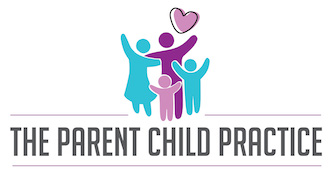As many parents can attest, it’s not always easy to live with a child who has Attention Deficit Hyperactivity Disorder (ADHD).
But as frustrating and overwhelming as it can sometimes be for the parent, it’s even more so for the child!
Just imagine, your child really wants to do all the things you say, but they just don’t know how. That’s because ADHD impacts their executive functioning —organization, impulse control, planning ahead, and completing tasks.
What can you do to provide support and guidance to help them learn those necessary executive functioning skills, stay calm, and overcome daily challenges?
Here are five practical tips:
Tip #1: Be Clear About Your Expectations
Consistency and clarity are crucial for a child with ADHD. Make sure you explain your expectations—what will happen when they follow your rules and what will happen when they break them—in a way that your child can understand.
Typically, a child with ADHD responds well to visual reminders and organized systems for rewards and consequences. Remember, though, timing is crucial. Both rewards and consequences need to be handled immediately after the appropriate or unacceptable behavior occurred.
Moreover, since children with ADHD inadvertently receive a lot of corrections, it’s important that parents are on the lookout to praise and encourage desirable behavior and provide positive reinforcement.
In particular, you must be supportive by helping your child with ADHD to learn social skills. For example, teach them how to listen, read facial and body language, and role-play how to handle different situations. Don’t force change, but make it fun and speak kindly yet honestly about challenges and ways to handle them.
Parent Resource: Skillstreaming curriculum is a research-based social skills program with lesson plans and reproducible handouts (http://www.skillstreaming.com/)
Tip #2: Create and Sustain Structure
While a child with ADHD typically has issues with being organized, parents can help by providing structure. How?
Teach organization by:
Establishing and following a routine for such things as meal times, homework, playtime, and bedtime.
Being neat and organized, leading by example, and having a place for everything, such as a special place where to lay out clothes and equipment for the following day.
Using timers and clocks throughout the home to keep your child on track with homework, playtime, or getting ready for school or bed.
Idle time could possibly make ADHD symptoms worse. However, there’s a big difference between keeping your child busy and overwhelming them. Thus, keep their schedule simple and manageable, but also activity-filled.
Parent Resource: Using a visual timer is often helpful for children with ADHD. Here is an example of a visual timer: https://www.timetimer.com
Tip #3: Encourage Good Nutrition
Food can affect the behavior of a child with ADHD, particularly because their distracted and/or impulsive nature may cause them to miss meals or overeat. Controlling when, what, and how much your child eats can actually help lessen their ADHD symptoms.
Be sure your child eats plenty of fresh, wholesome foods and stays away from junk food (especially fatty, sugary, and caffeine-rich foods). Enforce regular meal times so they don’t binge on unhealthy foods later. Regular and nutritious meals provide not only much needed physical nourishment but also necessary breaks and a predictable rhythm for each day.
Parent Resource: ADDitude magazine wrote an article of child-friendly meal ideas for children and teens with ADHD: https://www.additudemag.com/adhd-diet-easy-meals-children-recipes/
Tip #4: Provide a Balanced Activity/Sleep Schedule
Most children dealing with ADHD have a ton of energy. It’s important they get opportunities to burn that energy during the day. In particular, research has shown playing outdoors benefits children with ADHD and helps to improve concentration, brain growth, and sleep.
While your child should get at least as much sleep as their non-ADHD peers, they may often not get enough. The problem lies in that attention issues generally cause overstimulation and, therefore, problems with falling asleep.
What can you do to help?
Implement a consistent bedtime routine (regular hours and certain activities).
Find a way to lead into a more calmer state about an hour before bedtime. That means, cutting off TV watching and other highly stimulating activities and finding calmer things to do, such as coloring or reading.
Cuddle and read with your child 10-15 minutes before the lights go off.
Tip #5: Practice Self-Care
The best way to support your child and help them meet the challenges of ADHD is by being calm, positive, and focused yourself. That way, you can provide a model and an anchor.
How can you practice good self-care as you are dealing with your child’s ADHD?
Eat well, exercise regularly, and find ways to reduce your stress.
Keep matters in perspective, have a sense of humor, and remember that your child’s behavior is not intentional most of the time but related to their disorder.
Nix the perfectionism, don’t worry about trivial things, and be willing to make some compromises.
Take breaks and let friends or family members watch your child now and then to give yourself a little bit “me” time.
Don’t forget that you don’t have to do it all alone. Aside from accepting help from friends and family, seeking out the advice and support of your child’s physician, their teachers, and even a therapist, parent coach, or support group can help you continue to stay balanced and positive.
—
Yes, supporting a child with ADHD can be trying at times. But if you keep in mind that having ADHD is just as exasperating for your child, you’ll find it much easier to be positive, patient, and calm for both you and them.
To find out more information, please feel free to contact me.



